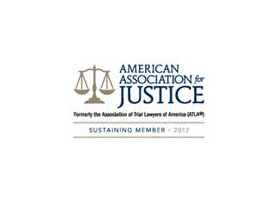NCAA president Mark Emmert has been ordered by a Maryland judge to be deposed in a lawsuit over the death of a college football player.
In a one-page order entered last week in Montgomery County (Md.) Circuit Court, Judge David Boynton granted a motion by the family of Derek Sheely to compel Emmert’s deposition. The NCAA had opposed Emmert’s testimony and said he was an “inappropriate witness” at this stage of the case. The Los Angeles Times first reported the judge’s ruling.
“Dr. Emmert is clearly a fact witness,” Paul Anderson, an attorney for Sheely’s family, said in a statement. “He has first-hand knowledge about the NCAA’s failure to protect student-athletes. Contrary to the NCAA’s suggestions, Dr. Emmert is not above the law. The NCAA failed to show that it would be unduly burdensome for him to be deposed. We will be taking his deposition soon.”
Sheely was a Division III football player at Frostburg State who collapsed during an August 2011 practice and later died from a head injury. His family filed a wrongful death lawsuit in August 2013 against the NCAA, two coaches and an athletic trainer from Frostburg State, and helmet manufacturer Schutt Sports. The suit alleges Sheely was pressured to return to practice despite needing medical attention four times over three days prior to his death.
In previous court filings, lawyers for the Sheely family said they want Emmert’s testimony in part to discuss whether “the NCAA was capable of acting to protect against repetitive head trauma and second-impact syndrome, whether the NCAA formed an intention about how it would act, and how the NCAA went about carrying out its actions.”
The lawyers have said they also want to question Emmert about a letter Sheely’s mother wrote to Emmert in December 2011 about her son’s death. The plaintiffs claim Emmert discussed the letter with members of the NCAA’s health and safety committee. Another NCAA employee responded to the family on Emmert’s behalf four months later with a four-paragraph response.
In previous court filings, the NCAA argued that deposing Emmert is “misplaced” because he lacks the authority to impose rules on NCAA members. The NCAA had said the plaintiffs can’t show Emmert has unique knowledge relevant to the case and that they “simply assume” he discussed the letter from Sheely’s mother with the health and safety committee.
The order for Emmert to be deposed in the Sheely case is happening as the NCAA tries to finalize a $75 million settlement from several class-action concussion lawsuits in federal court. The NCAA is facing opposition from one former player. The proposed settlement would waive athletes’ rights to collectively sue over concussions while preserving their ability to individually sue universities, conferences or the NCAA for personal-injury damages.
Under terms of the deal, the NCAA executive committee would recommend that the governing bodies of Division I, II and III pass legislation requiring member schools to certify they have a concussion management plan that meets guidelines required by the settlement. Critics claim the guidelines remain unenforceable. In July, the NCAA released new guidelines for hitting at football practices and concussion safety.
At a Senate committee hearing in July, the first question Emmert faced was the NCAA’s position in the Sheely lawsuit that it has no legal duty to protect college athletes.
“I will not quibble about the language,” Emmert replied. “I think that was at the very least a terrible choice of words created by legal counsel to make a legal argument. I’m not a lawyer. I’m not going to defend or deny what a lawyer wrote in a lawsuit. I will unequivocally state we have a clear moral obligation to make sure we do everything we can to protect and support student-athletes.”












